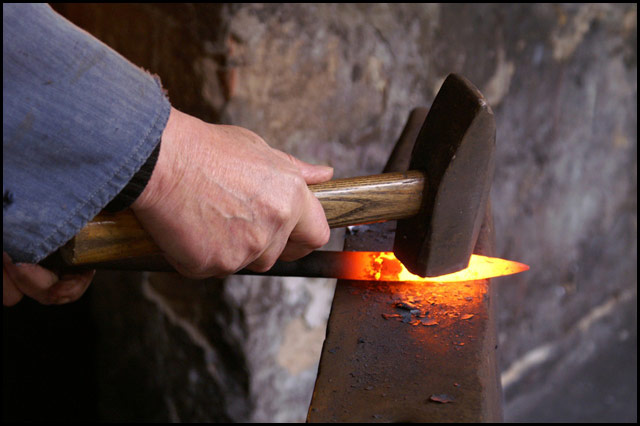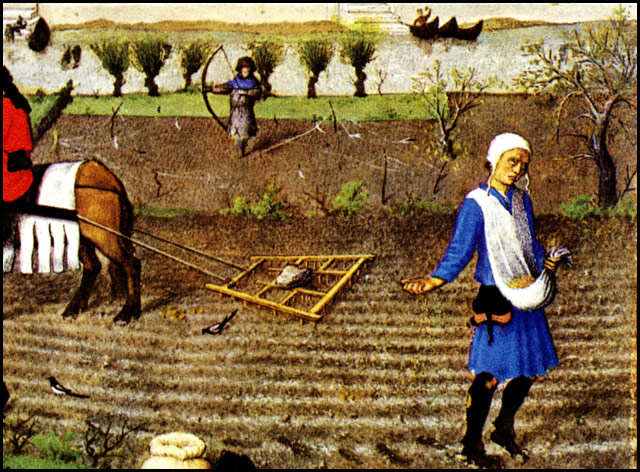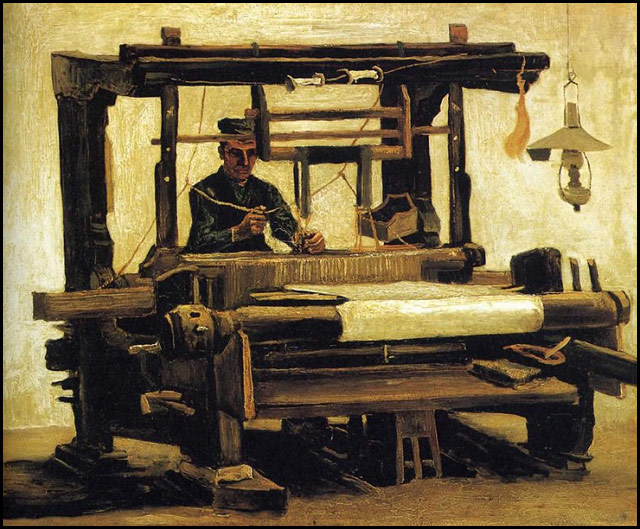(Originally posted on LiveJournal)
I’m not entirely sure what sent me off on this train of thought this last week. It certainly did not entirely begin with the matter of how one’s personal occupation and interests can affect one’s speaking vocabulary.
I’ve been gathering various thoughts and information in order to begin some serious revising on The Ring of Adonel. In fact, I’m contemplating doing something most writing instructors and gurus tell you not to do — revise early chapters while moving ahead with later ones. But I’m going to do it anyway, because I’m willful. Or, at least, I’m going to try it.
This last year, I joined a prose critique group (this focused on science fiction, fantasy, and horror). The group has read two chapters of The Ring of Adonel, and been very appreciative. For that I am grateful. It’s very, very agreeable to have readers (especially intelligent readers) express pleasure in the story you are telling. But they’ve also given me some very good notes that I can use in shaping some revisions.

One of their criticisms was not having a sense of what two of my characters really looked like, beyond their general coloring and the fact that they are tall. And I can’t argue their point: I actually had been rather vague about that. Perhaps not intentionally, but as I think back, I know I had been wrestling in my mind things like “pointed elven ears” and such. I’d gotten as far as mentioning the slight upward cant of the eyes, a look that tends to travel hand-in-hand with the pointed ears, but that was about it. Whether they were slim or bulky, massive or ethereal… I hadn’t really addressed those more physical manifestations. So I had to start thinking about that — and I’ll have to make the textual changes that will convey my final decision (it’s still being shaped).
But growing from that was also my sense that in many ways Gwyric and Darael – the high lords of two different “Houses” of the Fynlaren – talk too much like each other. Gwyric is the high lord of the Adaren, a people who are given to dreams and visions (precognitive, usually). Darael is the high lord of the Rinden, who are more connected to what could be called the “spiritual state” of people and objects, an ability that can extend to sensing the traces of someone in places that person has been recently. Those aspects, of course, can give certain coloration to how they talk.
But I started to wonder, “What do they do?” In all the years I have been developing and working on this fantasy world of Arveniem, I surprisingly had not asked myself that question. The story opens with Gwyric laboring at a forge, so obviously, he can do the job of blacksmith. But it had not occured to me to ask if that was his regular occupation.
So often in “high fantasy” the lords are shown doing “ruling” — that is, they are involved in their court intrigues, planning military campaigns, being judges of conflicts in the lives of their followers. And I’m not trying to say that those are not appropriate for characters in those positions. But with the Arveniem material, I had set up that they Fynlaren, being immortal in the world, try desperately to avoid warfare as much as possible. It’s not so much that they are worried about the bodily death of other Fynlaren (they can sense that the immortal spirit of that individual remains “in the world” and eventually regains flesh), but rather that they do not want the responsibility of ending a Mortal’s life. They don’t know with certainty what happens to mortal souls, and so they avoid war as much as they can. But that’s just one part of their life.

Another aspect of their immortality is that they are also very communal. Farming, herding and hunting are community activities, and they make sure all members of their community are fed and cared for. The individuals might make or create something that is not a “community item”, but it is almost entirely for pure pleasure of making, as a gift for someone else, or because someone needs something. And as immortals, they don’t need a lot of governance decisions made. So the “high lords” do not spend all their time being “high lords”.
It was easy enough to see that if Gwyric was at home with the forge in my opening chapter, it might be because that is what he does regularly: iron work. Farming tools, horseshoes, various implements, these could be what he makes as his “day job.” So, what, I asked myself, does Darael do?
This was harder. In the story, at least so far, he has been an observer mostly. And an organizer. But what does he do? I was puzzled.
Now, all along, in the background material, there had been something…. heh, there had “been a thread” that the Rinden could weave a wonderful fabric. A finely spun, finely woven fabric that was called “the sheen”. Basically, it’s the silk of Arveniem. So there it was. Apparently, when he’s not mulling over things, organizing and analysing things, Darael is a weaver. My heroine Lilyn is a weaver, and I actually had written that she had been taught the skill by the Rinden (she’s a mortal, you see, so this would have been a great honor). So why not have her teacher actually be Darael? It certainly made sense.

But now, it occured to me that I had cues for adding variances to the speech patterns of these two characters. They’re going to choose different metaphors and imagery based on their occupations.
It feels funny that after all the years this stuff has been dwelling in my head, I can still be learning new details about the communities and characters that I thought I knew so well. But it is also very satisfying to know that the “new details” are not at odds with what went before, but rather have been lying latent within the material, waiting to be nurtured until they could sprout and bud.
Which brings me back to the matter of fantasy in general and the concept of social productivity of overlords.
Governance and administration is, of course, a genuine occupation. Even though many fantasies don’t really dwell on the fact of this, but rather glide over the forms. The lord holds court …. but we don’t really get a sense of what is involved or what could be involved: two neighbors are disputing the boundaries of their properties because a stream changed course; a messenger from an other region has come asking if the lord or his people have supplies of some commodity to trade; a hostile but not-too-distant tribe is making plans to raid during the summer and the lord has to decide how to deal with this – should he send peace offerings now, or mass an army to meet a possible invasion? That sort of work can take up a great deal of time. (In fact, in the historical novel I’m working on about Lady Godiva, I mean to show her husband dealing with just such issues — and it’s a big job, on top of the fact that he does not dare further alienating the king.)
Heh. I’m not sure what my complaint is here. Because no, I don’t really want to read a fantasy where the daily counsels and court hearings of the lord are presented in detail. Perhaps it is just that I want a surer sense that the author understands these requirements of the job, when they chose to designate a character as “Lord of BlueHaven.”
What do these upper-class fantasy characters do with their lives? What is their contribution to the societies in which they live. They have to be doing something more than standing around looking beautiful and glittery and awesome.
Comments
sartorias – Jun. 1st, 2010
These are all excellent questions.
Like you say, we don’t want to see a story filled with political minutae, OTOH I have a tough time staying with a story in which a powerful king, whose style is implied as hands on, seems to do little but hang around his throne room wearing great clothes, or disporting on the royal beautyrest with his favorite of the moment.
scribblerworks – Jun. 1st, 2010
Indeed! I think it can become a cliche. Because our lives are so different, and Americans in particular live in a society structured so differently, I think it’s a certain gap when fantasy writers don’t think it out more thoroughly. “Oh, it’s a fantasy, let’s just go with the structure of nobility and such,” without even really understanding how that structure worked.
This is one of the things I’d be striving for with my Fynlaren — that to “outsiders” (the local Mortals and to people from other regions), there appears to be a hierarchical structure to the “tribes”. But in actuality, the high lords are such because they are quite literaly the “first” in their tribe (the “First Awakened”… but to explain the whole would be an entry onto itself)). And they have come to be trusted as the judges and guides of their Houses (tribes). And that is all. They are not otherwise any more special than any other Fynlaren. Well, except Gwyric, because he is the favored of Adonel… but that’s part of what the whole book is about. 😀
Heh. Sorry…. obviously my brain wants to be working on the novel.
banzailibrarian – Jun. 1st, 2010
There can be a lot of ceremonial involved in ruling, which might be evolved as part of the spiritual aspect of ruling or might simply arise to keep them too busy to get in much trouble, depending on the direction of your writing. Think of all the time spent prepping Louis XIV and his ilk for public appearance — the levee, the dressing, the minute political ramifications of who gets to do what to get him dressed. Could take half a day or more. But on a far more rarified level, think Galadriel and her maidens making lembas or spinning hair into bowstrings — items made by royalty that have a certain extra blessing to him. Or ancient Greek kings with religious roles in the plowing and the harvest. Perhaps Gwyric’s metal working and Darael’s weaving have a spiritual or ceremonial significance? And therefore they must spend a certain amount of time on them.
scribblerworks – Jun. 1st, 2010
That’s a very good point about the ceremonial aspect of ruling. And it certainly is something that can be made use of in many places.
It made me smile in connection with this particular example, though. Mainly because of how I designed the Fynlaren and how they conduct their lives. I had decided that because they were immortal-in-the-world, that they would not bother with “rules and laws”, at least not the way we do. Life to them is cyclical like the seasons. And because in my mind they have a more spiritual connection to their world, I felt that they would shape their lives according to rituals. And up to this point, so far as they knew, there had not been an instance of someone intentionally doing wrong to another of the Fynlaren. Sure, disagreements.
So I wanted the “day jobs” of the high lords to be just that. Sort of matter-of-fact exercises of benefit to the community, rather than sacred, symbolic blessings on the craft. And in fact, in the second chapter, we meet Darael’s wife Ilona in just such a fashion (that is, the matter-of-fact way) — she’s a baker.
Still… the ceremonial performance of a mundane task… that could be interesting fodder for a story or two. (Makes note in files.) Thanks! 😀
